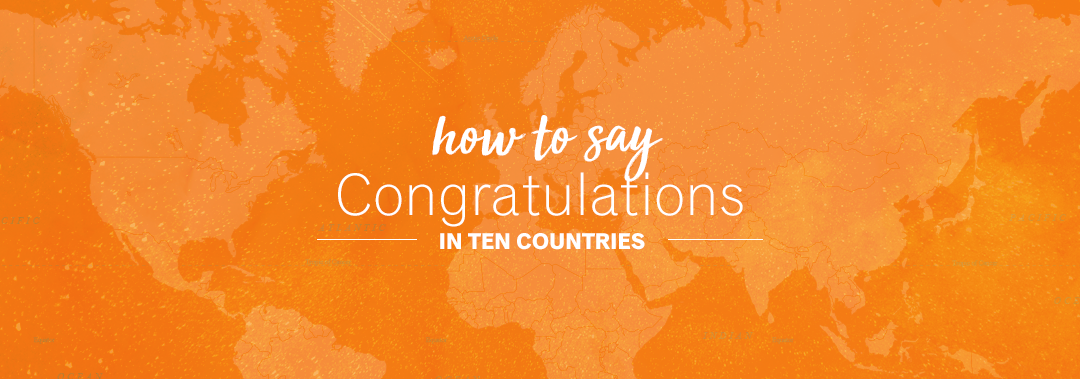Summer’s almost here, and that means graduation season is also upon us. Whether you’ll be traveling this summer or just want to congratulate your students in an international fashion, these phrases will be good to know.
10 ways to say “Congrats, grad!” in other countries:
 1. Egypt: مبروك
1. Egypt: مبروك
مبروك (“mabrouk”) is the Arabic word for “Congratulations.” This word also means “bless” or “grace” (the root of the word is “baraka,” meaning blessing), and is one of the most commonly used words in the language. Meanwhile, تَهَانِي (“tahani”) is another common word used for congratulations or best wishes.

2. Czech Republic: Blahopřeji
“Blahopřeji” works by itself as “Congratulations,” but you can also say “Blahopřejeme k promoci,” meaning “Congratulations on your graduation.” Sidenote: If the consonant-rich Czech words look difficult to say, you’re not the first to notice. “Strč prst skrz krk” (“stick a finger through the throat”) is an example of a full sentence with no vowels at all.

3. France: Félicitations
“Toutes mes félicitations” is the longer, more formal phrase, meaning “All my congratulations.” To say “Congratulations on your graduation,” say “Félicitations pour ton diplôme.” “Chapeau” is another, shorter word of congratulations, and you can also sprinkle in words of good luck or good work, like “Bonne chance” or “Bien joué.”

4. Germany: Gratulation
“Gratulation” pretty much covers it, though you could say “Ich gratuliere zum bestandenen Abitur,” meaning “I congratulate you on your graduation.” To wish someone the best of luck, say “Herzlich Glückwunsch,” or “Alles Gute.”

5. Italy: Congratulazioni
This is an easy one to remember: “Congratulazioni” means “Congratulations” in Italian, but if you want to talk about graduation specifically, you can say “Congratulazioni per la tua laurea.” Fun fact: Laurea shares the same root as laurel wreath, which is given to university graduates to wear for the day. Meanwhile, “complimenti” or “bravo” both mean “well done.”

6. Japan: おめでとう
おめでとう (“Omedetō”) means “Congratulations” in Japanese, and 卒業おめ (“sotsugyō”) means “graduation.” Together, you’d say 卒業おめでとう (“sotsugyō omedetō”) to say “Happy graduation.” This is an informal expression; if you wanted to be more formal, you could say “Gosotsugyo omedeto gozaimasu.”

7. Turkey: Tebrikler
Tebrikler is a general word for “Congratulations,” but if you want to congratulate someone specifically on their graduation, you can say “Mezuniyetini kutlarız!” “Gözünüz aydın” is another good phrase to know: It technically means “bright eyes” but is used as congratulations for something that has taken a while to achieve.

8. Spain: Felicitaciones
You might recognize the root word “feliz,” which means “happy.” “Felicitaciones,” along with “Enhorabuena” (meaning “in good time”), is used to congratulate someone for a hard-earned achievement, like earning a degree. “Felicidades” also means “congratulations,” but it is used more for calendar occasions like birthdays or anniversaries.

9. Russia: Поздравля́ю
Поздравля́ю (“Pozdravlyáyu!”) means “Congratulations” in Russian. You can also use Будем здоровы (“Budem zdorovi”), which is more equivalent to “Cheers.” Pro tip: Russian uses the Cyrillic script, but you can learn to read the language easily just by learning what the letters translate to in Latin script.

10. Portugal: Parabéns
“Parabéns” is used to congratulate, but it can also mean “good work” or “well done.” Para is a preposition meaning to, through, or for, and ben/bon means “good” in Latin and many Latin-based languages. You can also use “congratulações” or “felicitações.”
If this post is giving you wanderlust, it’s time to consider bringing your juniors abroad next year to send them off right. Plan a tour with us!

